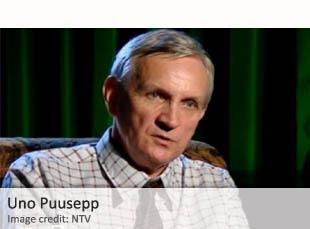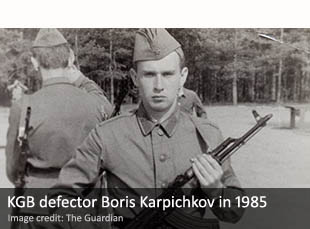Flurry of diplomatic expulsions as European states respond to Russia spy allegations
April 27, 2021 Leave a comment
 SEVERAL EASTERN EUROPEAN STATES announced plans to expel Russian diplomats this week, as Moscow declared an Italian diplomat persona non grata in a tit-for-tat dispute with Rome over espionage allegations. Earlier this month, the Czech Republic expelled 18 Russian diplomats in protest against an explosion that totaled a remote munition depot in the east of the country, which Prague claims was part of a Russian intelligence operation.
SEVERAL EASTERN EUROPEAN STATES announced plans to expel Russian diplomats this week, as Moscow declared an Italian diplomat persona non grata in a tit-for-tat dispute with Rome over espionage allegations. Earlier this month, the Czech Republic expelled 18 Russian diplomats in protest against an explosion that totaled a remote munition depot in the east of the country, which Prague claims was part of a Russian intelligence operation.
The explosion, which occurred in October of 2014, killed two people and destroyed a munitions storage facility belonging to the Military Technical Institute of the Czech Ministry of Defense. Czech investigators recently concluded it was perpetrated by Unit 29155, a Russian elite spy outfit that operates under the Main Directorate of the General Staff of the Russian Armed Forces, commonly known as GRU. The Kremlin responded to the expulsions of its diplomats by ordering 20 Czech diplomats to leave Russia, and condemning Prague’s move as an “unprecedented” and “a hostile act” that was designed “to please the United States”.
The Czechs retorted by calling their allies in the North Atlantic Treaty Organization and the European Union to “expelled officers of Russian special services” in solidarity. In recent days, five countries have answered Prague’s call. Seven Russian diplomats have been given just days to leave Slovakia, Lithuania, Latvia, Lithuania and Estonia. Meanwhile, Romania announced on Monday that it would expel Alexei Grichayev, who serves as a deputy military attaché at the Russian embassy in Bucharest. The Romanian government said Grichayev’s “activities and actions [were] contrary to the Convention of Vienna on diplomatic relations” —a phrase used to denote espionage in diplomatic parlance.
Also on Monday, the Romanian Ministry of Foreign Affairs summoned the Russian ambassador in order to file an official complaint, while Hungary, Poland and Slovakia issued a joint statement decrying what they described as “deplorable act[s] of aggression and breach of international law committed by Russia on European soil”. In a separate development, Moscow said on Monday it would expel an Italian diplomat in response to the expulsions of two Russian diplomats from its embassy in Rome last month. The two Russians were accused of recruiting an Italian Navy captain, who has been charged with spying for the Kremlin.
► Author: Joseph Fitsanakis | Date: 27 April 2021 | Permalink
 A court in Estonia has ordered the release of a former senior defense official who spied on the North Atlantic Treaty Organization for Russia, causing what experts
A court in Estonia has ordered the release of a former senior defense official who spied on the North Atlantic Treaty Organization for Russia, causing what experts  The former chief executive of Danske Bank’s subsidiary in Estonia, which is implicated in a massive money laundering scheme, has been found dead in an apparent suicide in Tallinn. Aivar Rehe, 56, headed the Estonian subsidiary of the Copenhagen-based Danske Bank, one of Northern Europe’s largest retail banks, which was founded in 1871. He belonged to a group of dynamic young entrepreneurs who spearheaded the privatization of the Estonian economy in the post-Soviet era.
The former chief executive of Danske Bank’s subsidiary in Estonia, which is implicated in a massive money laundering scheme, has been found dead in an apparent suicide in Tallinn. Aivar Rehe, 56, headed the Estonian subsidiary of the Copenhagen-based Danske Bank, one of Northern Europe’s largest retail banks, which was founded in 1871. He belonged to a group of dynamic young entrepreneurs who spearheaded the privatization of the Estonian economy in the post-Soviet era. Russian spy agencies use front companies to purchase directorates that contain the contact details of United States government employees, according to a new intelligence report. The contact details are contained in multi-page directories of Congressional staff members and employees of US federal agencies. They are published every January by a specialist vendor called Leadership Connect with the cooperation of a Washington, DC-based provider of publishing services. The directories contain the names, job titles, professional addresses and telephone numbers of US government employees.
Russian spy agencies use front companies to purchase directorates that contain the contact details of United States government employees, according to a new intelligence report. The contact details are contained in multi-page directories of Congressional staff members and employees of US federal agencies. They are published every January by a specialist vendor called Leadership Connect with the cooperation of a Washington, DC-based provider of publishing services. The directories contain the names, job titles, professional addresses and telephone numbers of US government employees. A Russian court has sentenced an Estonian aircraft business executive to 12 years at a maximum security prison, allegedly for having spied on Russia a decade ago. Little is known about the case of Raivo Susi, who co-owns two companies that are involved in the sale and maintenance of non-commercial aircraft. The Estonian businessman’s activities include the partial ownership of Aerohooldus OU, which provides training jet aircraft for use by the Air Force of Estonia –a member state of the North Atlantic Treaty Organization (NATO).
A Russian court has sentenced an Estonian aircraft business executive to 12 years at a maximum security prison, allegedly for having spied on Russia a decade ago. Little is known about the case of Raivo Susi, who co-owns two companies that are involved in the sale and maintenance of non-commercial aircraft. The Estonian businessman’s activities include the partial ownership of Aerohooldus OU, which provides training jet aircraft for use by the Air Force of Estonia –a member state of the North Atlantic Treaty Organization (NATO). The Russian and Estonian intelligence services have exchanged two men accused by each country of spying for the other, in a rare public example of what is commonly referred to as a ‘spy-swap’. The exchange took place on Saturday on a bridge over the Piusa River, which forms part of the Russian-Estonian border, separating Estonia’s Polva County from Russia’s Pskov Oblast.
The Russian and Estonian intelligence services have exchanged two men accused by each country of spying for the other, in a rare public example of what is commonly referred to as a ‘spy-swap’. The exchange took place on Saturday on a bridge over the Piusa River, which forms part of the Russian-Estonian border, separating Estonia’s Polva County from Russia’s Pskov Oblast.












